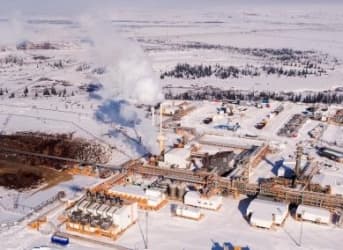No longer able to bet on itself, Russia hopes to make it easier, and more attractive, for others. The Ministry of Natural Resources and Ecology (MNR) has forwarded proposals to dramatically overhaul existing foreign investment regimes – particularly, concerning foreign investment in the development of major oil and gas deposits.
The Strategic Investment Law, enacted in 2008, limits foreign participation in transactions related to Russia’s biggest fields, or those deemed of strategic importance to the national defense and security of the Russian Federation. Such fields contain recoverable oil reserves of no less than half a billion barrels (bbl), gas reserves of no less than 50 billion cubic meters (bcm), or are located in Russia’s internal or offshore waters. Under existing law, a foreign investor or foreign state must obtain government consent in order to purchase more than 10 percent of a company or entity holding subsoil licenses of strategic importance. Foreign ownership is capped at 25 percent.
The civil war in Ukraine, subsequent sanctions from the West, and low oil prices have wrecked Russia’s economy, which is expected to retract 3 percent this year. Looking further, the medium-term prospects offer little hope. Capital flight soared last year, topping $150 billion. Human capital is also fleeing in droves. In the first nine months of 2014, 203,000 Russians abandoned country; expatriate numbers are even more staggering at 417,000 – roughly 5 percent – between January 20, 2014 and January 20, 2015. The shrinking middle and entrepreneur classes underscore the importance of future success for the already hugely vital energy sector. Related: Russia And China’s Growing Energy Relationship
Rosneft, with repeated requests for a bailout, has already illustrated the need for a helping hand – one that it may receive from the National Wealth Fund. Interested in a more long-term fix however, Head of the MNR Sergei Donskoy believes the investment appeal has to improve now, if Russia is to meet its future production and economic goals.
MNR’s proposal is to lift the restrictions governing foreign investors interested in Russia’s strategic fields. Specifically, the MNR will allow foreign concerns to acquire up to 25 percent of a project without the approval of the Government Commission, chaired by Prime Minister Dmitri Medvedev. With such approval, a foreign investor could obtain ownership of up to 49 percent and even vie for a controlling stake. For now, the saturated Russian continental shelf is not included in MNR’s proposal.
The goal is to go after Asian investors – in particular, China – who is interested in a more transparent regulatory atmosphere and, more importantly, big hauls. One field to watch is the promising 3.5bbl Vankor field in Eastern Siberia, operated by Rosneft subsidiary Vankorneft, of which China National Petroleum Corporation (CNPC) already owns a 10 percent stake. Talks on increasing CNPC ownership in the venture have yet to begin, but China stands to fare better than it did just two years ago, when CNPC was unable to work a deal for a 50 percent stake in another Rosneft operation, Taas-Yuryakh. Related: Russian Gas Provides Lifeline To Chinese Expansion
India’s Oil and Natural Gas Corporation (ONGC) is another frontrunner to up its involvement in Russia’s upstream sector – ONGC already owns a 20 percent stake in Rosneft’s Sakhalin-1 project. The majority state-owned company is reportedly seeking a 25 percent interest in the aforementioned Vankor fields as well as a tax-friendly 49 percent share of the Yurubcheno-Tokhomskoye greenfield project in Siberia.
Deputy Prime Minister Arkady Dvorkovich believes his country is “on the threshold of an investment breakthrough,” but political risk remains high. The recent murder of opposition politician and former Deputy Prime Minister Boris Nemtsov mere steps from the Kremlin may serve to harden the already robust Western ideology against Russia. Whatever the outcome, Asia is ready and willing to reap the benefits.
By Colin Chilcoat of Oilprice.com
ADVERTISEMENT
More Top Reads From Oilprice.com:
- Gazprom Confident In European Future Despite ‘New Cold War’
- Russian Sanctions Might Be Obama’s Greatest Blunder
- China’s Pivot Toward Europe May Cut USA Out Of Deal


















